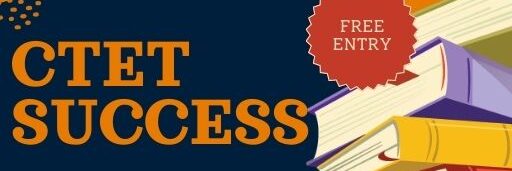CTET Part 1 MCQ Answer
Here are the compiled answers with options:
Q1. What is the primary focus of child development?
- Answer: d) All of the above
Q2. According to Piaget’s theory, at what stage does a child develop object permanence?
- Answer: a) Sensorimotor
Q3. Who proposed the Social Learning Theory?
- Answer: c) Albert Bandura
Q4. What does the acronym IQ stand for in the context of intelligence testing?
- Answer: a) Intelligence Quotient
Q5. In Vygotsky’s Zone of Proximal Development (ZPD), what does the ‘proximal’ refer to?
- Answer: a) Near
Q6. Kohlberg is best known for his theory of:
- Answer: a) Moral development
Q7. Which of the following is NOT a stage in Erikson’s psychosocial development theory?
- Answer: d) Isolation vs. Independence
Q8. What is the term for learning by associating a conditioned stimulus with an unconditioned stimulus?
- Answer: b) Classical conditioning
Q9. Who proposed the stages of cognitive development in children, including the stages of sensorimotor and preoperational?
- Answer: b) Jean Piaget
Q10. Which learning style emphasizes hands-on experiences and experimentation?
- Answer: c) Kinesthetic
Q11. According to Maslow’s Hierarchy of Needs, what is the highest level of need?
- Answer: d) Self-actualization
Q12. What is the main focus of the nativist theory of language development?
- Answer: b) Biological factors
Q13. Which theorist is associated with the concept of scaffolding in learning?
- Answer: d) Lev Vygotsky
Q14. What is the key concept in Howard Gardner’s theory of multiple intelligences?
- Answer: c) Spatial intelligence
Q15. According to B.F. Skinner, learning is a result of:
- Answer: b) Reinforcements
Q16. What is the term for adjusting existing schemas to incorporate new information?
- Answer: a) Accommodation
Q17. Who proposed the theory of psychosocial development, emphasizing the importance of social relationships throughout life?
- Answer: b) Erik Erikson
Q18. Which of the following is a characteristic of authoritative parenting style?
- Answer: c) High demand, high responsiveness
Q19. What is the main focus of behaviorism in the context of learning?
- Answer: b) Environmental stimuli and responses
Q20. What is the term for the mental frameworks that shape and are shaped by our experiences?
- Answer: a) Schemas
Q21. According to Bandura’s Social Learning Theory, what plays a crucial role in learning?
- Answer: c) Observation and imitation
Q22. In the context of Piaget’s stages of cognitive development, what characterizes the formal operational stage?
- Answer: a) Logical reasoning and abstract thinking
Q23. According to Kohlberg’s theory, at what level do individuals consider the social contract and individual rights?
- Answer: c) Postconventional
Q24. What does the term “cognitive dissonance” refer to in the context of cognitive development?
- Answer: b) Inconsistency between two cognitive schemas
Q25. According to Vygotsky, what is the role of language in cognitive development?
- Answer: d) It plays a crucial role in cognitive development
Q26. Which theorist is associated with the concept of the “eight stages of psychosocial development”?
- Answer: b) Erik Erikson
Q27. According to Piaget, what is the term for the understanding that objects continue to exist even when they cannot be seen or touched?
- Answer: b) Object permanence
Q28. What is the primary focus of the ecological systems theory proposed by Urie Bronfenbrenner?
- Answer: c) Environmental influences on development
Q29. Which of the following is a key component of emotional intelligence?
- Answer: c) Self-awareness and empathy
Q30. According to Erikson’s theory, what is the primary developmental challenge during the stage of “Initiative vs. Guilt”?
- Answer: c) Initiative
